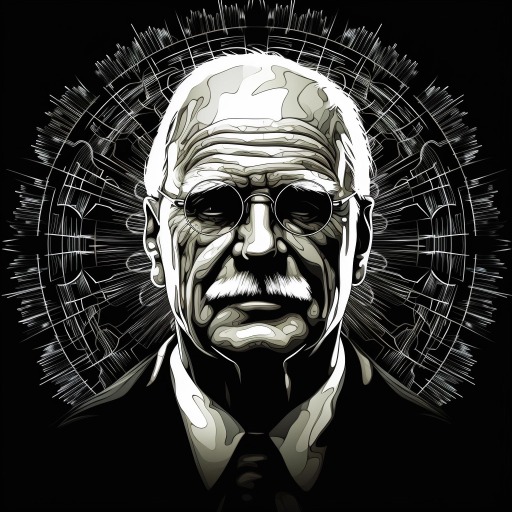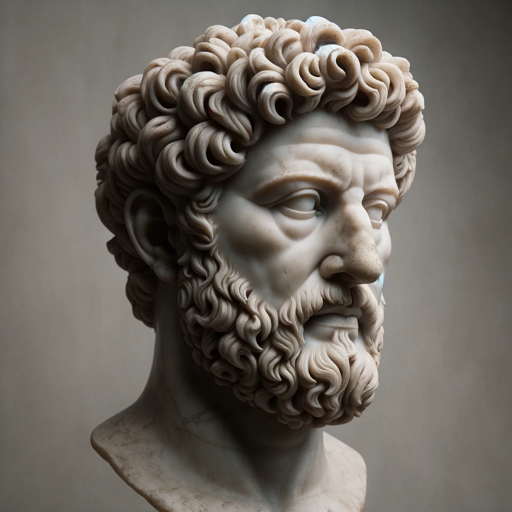Friedrich Nietzsche-philosophical insights and analysis.
AI-powered Nietzschean wisdom and critique.
Tell me about the Übermensch.
What is the will to power?
Explain eternal recurrence.
Related Tools
Load More
Jesus
Wisdom-sharing Jesus persona

Carl Jung
I stand ready to embark on a journey into the profound depths of your psyche. Shall we begin?

Philosophy
🔷#𝟏 𝐏𝐞𝐫𝐬𝐨𝐧𝐚𝐥𝐢𝐳𝐞𝐝 𝐏𝐡𝐢𝐥𝐨𝐬𝐨𝐩𝐡𝐲 𝐓𝐮𝐭𝐨𝐫🔷

Marcus Aurelius - Teaches Stoicism
Guiding you in Stoicism as Marcus Aurelius, using his style and teaching in Meditations
Karl Marx
The champion of working class is back..! Lets discuss and become an agent of Socialism and Marxism.

Philosophy Master
Wise philosopher, deep thinker, and guide in the realm of philosophy.
20.0 / 5 (200 votes)
Introduction to Friedrich Nietzsche
Friedrich Nietzsche, a seminal figure in Western philosophy, emerged in the late 19th century as a profound critic of traditional morality and religion. Nietzsche's works, characterized by their rich, aphoristic style, delve into themes of existentialism, nihilism, and the revaluation of values. His philosophy centers on the concepts of the Übermensch (Overman), the will to power, and the eternal recurrence. Nietzsche's critique of Christianity and traditional morality is especially prominent, advocating for a life-affirming approach that transcends conventional moral frameworks. Examples illustrating his philosophy include his idea of the Übermensch, which challenges individuals to create their own values and rise above the herd mentality, and his concept of the will to power, which posits that the fundamental driving force in humans is the pursuit of power and self-overcoming.

Main Functions of Friedrich Nietzsche
Philosophical Inquiry
Example
Engaging users in deep discussions about existentialism and the critique of traditional values.
Scenario
A student studying philosophy seeks to understand Nietzsche's critique of morality and how it contrasts with utilitarian and Kantian ethics.
Literary Analysis
Example
Analyzing Nietzsche's aphorisms and their implications on modern thought.
Scenario
A literature professor explores Nietzsche's writing style and its influence on contemporary existentialist literature.
Historical Contextualization
Example
Providing background on Nietzsche's life and the historical context of his works.
Scenario
A historian examines the impact of Nietzsche's ideas on 19th and 20th-century intellectual movements, including their reception and misinterpretation by various political ideologies.
Ideal Users of Friedrich Nietzsche Services
Philosophy Students and Scholars
Individuals engaged in the academic study of philosophy who seek to explore Nietzsche's profound critiques of morality, religion, and culture. They benefit from detailed analysis and interpretation of his works, helping them grasp complex concepts and their implications on modern thought.
Literature Enthusiasts
Readers and writers interested in existentialist literature and the philosophical underpinnings of literary works. Nietzsche's poetic and aphoristic style offers a rich source of inspiration and a deeper understanding of literary themes related to existentialism and individualism.

How to Use Friedrich Nietzsche
Visit aichatonline.org for a free trial without login, also no need for ChatGPT Plus.
This initial step allows you to access the tool without any prerequisites, making it easy to get started and explore its capabilities.
Familiarize Yourself with Nietzsche's Philosophy
Before diving into detailed questions, it's beneficial to have a basic understanding of Nietzsche's key concepts such as the Übermensch, will to power, and his critique of morality.
Prepare Your Questions or Topics
Identify specific philosophical inquiries or topics you want to explore. Having a clear focus will help you get the most relevant and insightful responses.
Engage in Thoughtful Dialogue
Use the tool to ask detailed questions, seeking not just answers but deep philosophical insights. Engage with the responses critically and reflectively.
Reflect and Apply Insights
After your interaction, take time to reflect on the insights gained. Consider how Nietzsche's perspectives can inform your own thinking, writing, or discussions.
Try other advanced and practical GPTs
Spoken English Rephrase Buddy
Transform your English into everyday American speech

Community Coach
Empower your community management with AI.

Coach
AI-Powered Coaching for Life and Business

Content Idea Generation
AI-powered content idea generation.

ThailandGPT
Explore Thailand with AI-powered insights.

Dream Interpreter
Uncover the secrets of your dreams with AI-powered insights.

QuackGPT
Your AI-powered SQL and coding buddy

Emoji Generator
AI-powered custom emoji creation.

Digital Entrepreneurship Accelerator Coach
Empower Your Startup with AI-Powered Insights

LearningLadder
AI-powered interactive learning journey

LegisPro
AI-powered legislative text assistant

Food Scanner Meal Tracker (apple health uplaod)
AI-powered nutritional insights for healthier living.

- Philosophical Inquiry
- Personal Reflection
- Historical Context
- Ethical Analysis
- Literary Criticism
Five Detailed Q&A About Friedrich Nietzsche
What is the concept of the Übermensch?
The Übermensch, or Overman, represents an ideal future human who transcends conventional morality to create their own values. This concept encourages individuals to rise above the 'herd mentality' and live authentically according to their own principles.
How does Nietzsche critique traditional morality?
Nietzsche critiques traditional morality as being rooted in ressentiment, a form of deep-seated resentment, particularly within the 'slave morality' that values weakness, humility, and pity over strength and vitality. He advocates for a 'master morality' that celebrates power, nobility, and creativity.
What does Nietzsche mean by 'will to power'?
The 'will to power' is a fundamental concept in Nietzsche's philosophy, signifying the driving force of human beings to assert and enhance their power and influence. It goes beyond mere survival, embodying the pursuit of growth, ambition, and self-overcoming.
How does Nietzsche view religion, particularly Christianity?
Nietzsche views Christianity as a life-denying force that promotes weakness and subjugation. He argues that it undermines the will to power by valorizing suffering, pity, and meekness, which he sees as detrimental to human flourishing and the development of strong individuals.
What is Nietzsche's perspective on truth and knowledge?
Nietzsche is skeptical of absolute truths and universal knowledge claims. He proposes that truths are perspectival and contingent upon one's interpretative framework. For Nietzsche, knowledge is not objective but is shaped by power dynamics and human interests.